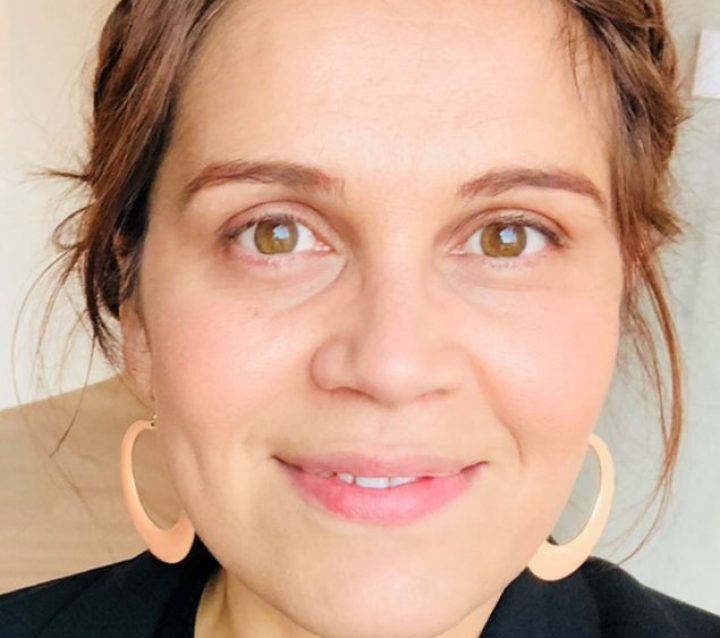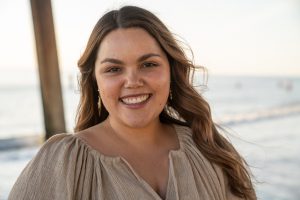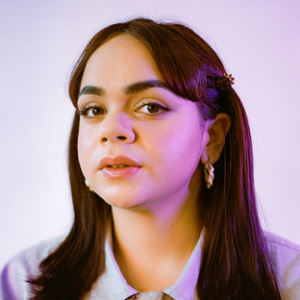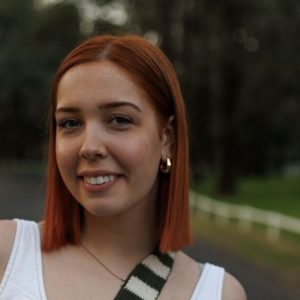Please tell us your story! How did you get to where you are today?
My name is Kaleena Smith (Briggs), and I am a Wiradjuri/Yorta Yorta woman originally from Naarm, now living on Gadigal land. My family comes from Narrandera, and Cummeragunja and I am proud to come from a strong matriarchal line. Music has always been an important part of my family.
In 1999 I co-founded the vocal group Stiff Gins. We have been very fortunate to perform consistently for 26 years and recently released our fifth album, Crossroads. Alongside my work as a musician, I also have the great privilege of being the First Nations Development Manager at MusicNSW which is such a role.
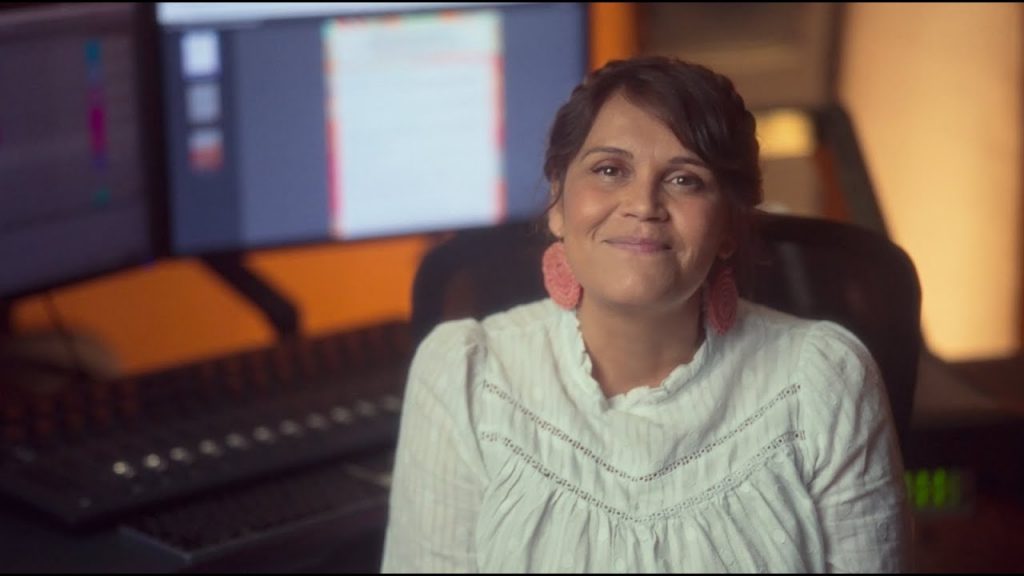
Why did you want to get into the music industry?
I never really thought about being part of the “industry”, I just wanted to sing, and believed I might be able to. That’s always been at the core of my journey, and it hasn’t really changed. I love performing audiences in intimate spaces, where I feel there is such a great opportunity to genuinely connect with listeners. For me, the joy comes from creating songs that tell a story, that connect to my culture and the joy of singing in harmony.
“The First Nations music community may seem small, but it’s mighty.“
“connecting with it will strengthen your journey.“
Do you feel that higher education is a necessary step to enter the music industry?
I believe higher education can be a valuable resource, offering professional development and skills in specific areas of the music industry. That said, I don’t see it as an essential pathway for all creatives to achieve their aspirations, as the music industry continues to shift and evolve. However, the relevance and role of higher education in supporting creative careers will also continue to change.
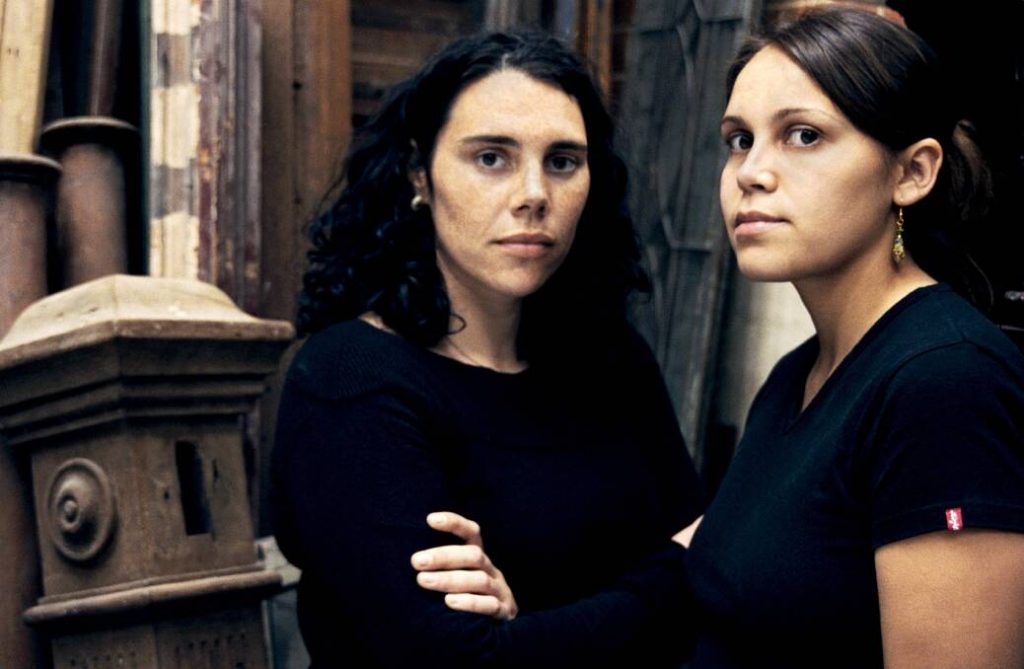
Let’s talk about the highs vs the lows of your career. What is your greatest achievement?
Some of my personal highlights might seem slightly mundane, but to me they mean everything; a gig with great sound, a beautiful venue, and an audience that truly listens can’t be beat. One particular moment that stands out was when a young First Nations girl told me she was singing one of the first songs I had written in my language for her HSC which is such an incredible honour. I also feel deeply proud of our latest album.
Of course, there have been lows as well. Experiencing racism and misogyny throughout my life even outside of music have definitely affected how I interact with the world and people. As a First Nations person in the music industry, racism can make you hyperaware in every interaction with non-Indigenous people, constantly bracing for prejudice or dismissal or a flyaway remark that hurts and is disheartening.
“what other people think of you has nothing to do with you. I’ve spent far too much time caught up in wondering if I said the right thing, and believing that when things went wrong I was somehow at fault or what people thought of me.”
Who has been your biggest champion in your career?
My best friend and singing partner in Stiff Gins is Nardi Simpson. I’ve known her since I was 17, and she is my best friend and my big sister. She is honest, kind, and wise and she believes in me, especially in the moments when I may struggle to believe in myself. Everyone should be as lucky to have a great friendship like that. She’s the Frodo to my Sam!
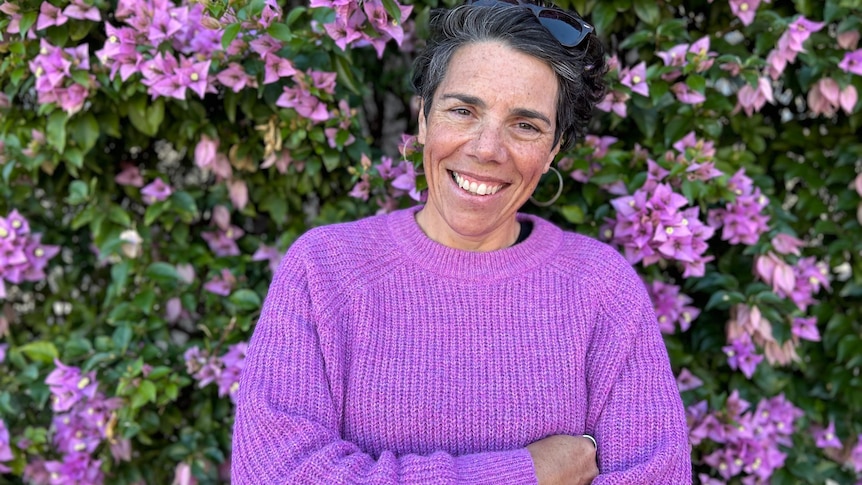
What is your big picture career goal?
I kind of see myself as a pebble in the pond. Hopefully with small actions (advice and support) it might create waves that with other like minded people ripple out and enact real change. (I also hope to finally release my solo EP next year so I can tick that box).
What is the best piece of life advice you’ve ever received?
My mum gave me the best advice and I try to live my life by it. At 19 I was unsure what to do next and was a bit all over the place still trying to figure it all out and she said ‘do what makes you happy’ . It sounds so simple but can be a complicated journey, but I try to live by it. If where I’m at is not bringing me joy and doesn’t feel right or challenging me in a good way, it’s time to reevaluate, change it and move on.
“there’s the cultural load of often being the only First Nations person, and sometimes the only First Nations woman, in the room. That comes with a deep sense of responsibility and constant awareness, but also moments of isolation when I find myself carrying that role alone.“
Who are your role models in the industry, be they local or International?
There are so many local people who inspire me that I couldn’t possibly choose just one. I am always inspired by First Nations women in the music industry who are making beautiful music and doing all the work and killing it. Internationally, I’m especially inspired by one of my favourite composers, Bear McCreary. His film and television scores are extraordinary, the way his music fits the visuals is absolutely seamless.
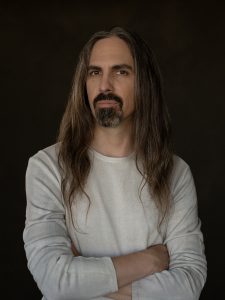
Pictured: Bear McCreary
“I am always inspired by First Nations women in the music industry who are making beautiful music and doing all the work and killing it.“
Who are your top 3 ‘artists to watch’?
What have been the most significant challenges you’ve faced as a First Nations woman navigating the “Australian” music industry?
I feel one of my greatest challenges has been resisting the urge to make myself smaller, or to believe that I shouldn’t take up space or I don’t belong in that room. It’s been difficult to stop shaping myself into what I think others expect me to be, or what they assume I am. On top of that, there’s the cultural load of often being the only First Nations person, and sometimes the only First Nations woman, in the room. That comes with a deep sense of responsibility and constant awareness, but also moments of isolation when I find myself carrying that role alone.
Did you experience those first years as a space of invitation, resistance, or negotiation and how did that set the tone for your path forward?
We named our band Stiff Gins knowing the previous connotations that the word ‘gin’ had and the possible reaction from the community this might and would have. We had done our research and were hoping to reclaim a First Nations word that had originally meant woman in Darug and then had been taken and warped and associated as derogatory and hopefully representing our people in a respectful way may shift how that word is perceived. This has always been at the forefront of our music.
“First Nations artists, and many other underrepresented voices I feel often have to work twice as hard to be recognised and supported. Without building structures that are both accessible and culturally safe, the industry risks losing vital voices and important stories that reflect all that is good in this country.“
Were there moments at the start where you felt the industry opened its doors or where you had to push them open yourself?
As an artist, I’ve often felt that my work has sat somewhat outside what is typically considered “the industry.” My career has largely grown within the First Nations community and, to some extent, the folk festival circuit, spaces where I’ve been fortunate to continue working consistently, and still be invited back to perform.
In my role supporting other artists, I’ve also had the privilege of listening to First Nations creatives and advocating for them in spaces that still have a way to go when it comes to genuine inclusion.
Do you see your journey as part of a larger movement for equity and representation in “Australian” music?
I always hope that if an emerging/early career creative sees what I do, they feel inspired to say, “I can do that and I can do it better,” and then they go on to do it. For me, that would be a truly meaningful legacy (if I can be bold enough to call it that).
“creative output and the work artists put into their craft can sometimes exceed sustaining a career financially. That’s why long-term investment and strong support systems are essential.“
How have you balanced the dual roles of creative practitioner and industry professional, and what tensions or opportunities have emerged from moving between those spaces?
It’s actually been a really positive experience. My years of practice and industry involvement have given me a certain amount of knowledge that I can draw on to support other creatives in my role at MusicNSW. At the same time, being a musician allows me to simply enjoy the act of creating and performing. Moving between these roles has enabled me to engage with different layers of the industry and build connections across both artistic and professional spaces.
In your opinion, what are some hard truths that the music industry needs to recognise to truly thrive globally as a music culture?
First Nations artists, and many other underrepresented voices I feel often have to work twice as hard to be recognised and supported. Without building structures that are both accessible and culturally safe, the industry risks losing vital voices and important stories that reflect all that is good in this country.
Also, creative output and the work artists put into their craft can sometimes exceed sustaining a career financially. That’s why long-term investment and strong support systems are essential. We also need to acknowledge that an artist’s path is rarely a straight line to the top, it’s more like a tree branching in many directions and pathways. For me, success isn’t about fame; it’s about creating the conditions for artists to build sustainable, respected careers.
“‘do what makes you happy.’
“If where I’m at is not bringing me joy and doesn’t feel right or challenging me in a good way, it’s time to reevaluate, change it and move on.“
What would you tell your younger self if you could tell them anything?
That what other people think of you has nothing to do with you. I’ve spent far too much time caught up in wondering if I said the right thing, and believing that when things went wrong I was somehow at fault or what people thought of me.
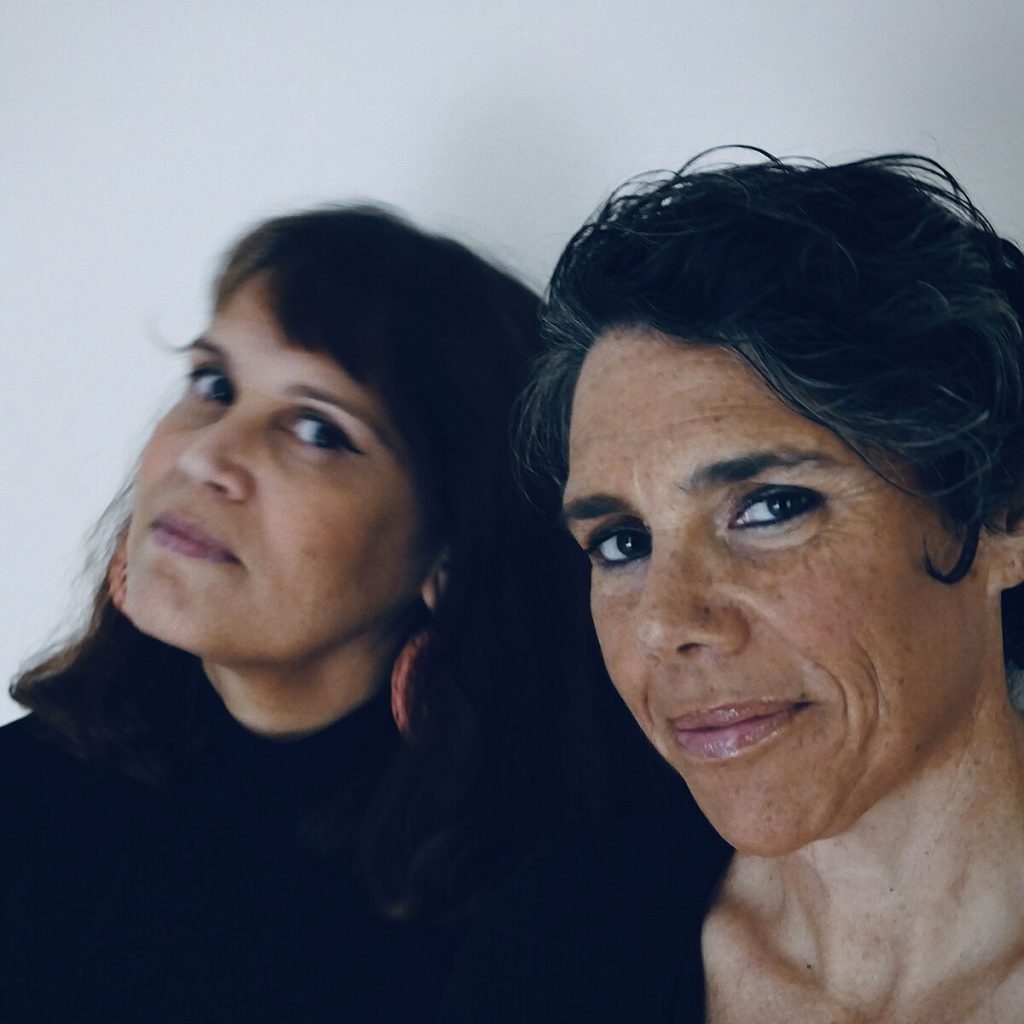
If you could offer one piece of guidance to the next generation of First Nations women entering the industry, what would it be?
Invest in your networks, they also take time to build. Engage with organisations like MusicNSW, which can serve as connectors between artists and the industry. Build the support systems you need both in your personal and professional, because the industry is still developing stronger spaces for First Nations people. The First Nations music community may seem small, but it is mighty and connecting with it will strengthen your journey. Additionally, in my role at MusicNSW, I’m here to assist and I’m your biggest fan!
What a whirlwind 2025 has been! What can we look forward to as we wrap up the year?
As Stiff Gins we finished our tour in October. I’ll start recording some tracks off my solo EP in Nov. Lots of very cool things are happening in the MusicNSW sphere, especially in the First Nations space.
What’s your go-to Karaoke song?
Malibu by Hole
